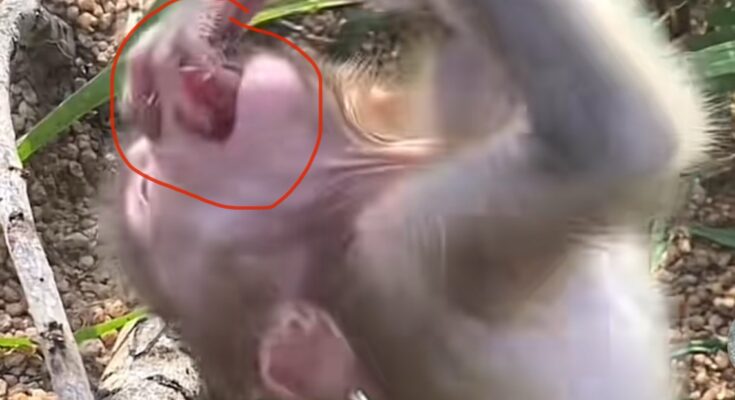In a heart-wrenching incident that highlights the often unseen cruelty of wildlife poaching, a baby monkey tragically lost its life after being caught in a poacher’s trap. While this may seem like a small event in the grand scheme of global wildlife issues, it is a powerful reminder of the silent suffering animals endure at the hands of human greed.
The image of an innocent baby monkey — barely old enough to forage for food or understand danger — ensnared in a trap meant for commercial gain, is deeply disturbing. This one life, lost in pain and confusion, symbolizes thousands of others suffering the same fate in forests around the world.
Poaching is often discussed in terms of its impact on endangered species and conservation efforts. While this is crucial, stories like this one reveal another layer: the emotional and social toll on animals who, like primates, are known for their intelligence, familial bonds, and capacity to feel fear, pain, and even grief.
Monkeys are incredibly social creatures. Baby monkeys rely on their mothers not just for nourishment, but for emotional safety. Being caught in a trap doesn’t just cause physical injury — it’s a traumatic, isolating event that leaves both the baby and its troop in distress. For a mother monkey to see her infant harmed or taken is heartbreaking, and these emotional traumas ripple through primate groups.
This death is not just an unfortunate accident — it is the result of illegal activity and a lack of enforcement. Poaching is still rampant in many regions, driven by demand for exotic pets, traditional medicine, bushmeat, and trophies. Despite laws and conservation programs, traps like these are cheap, easy to hide, and deadly. Sadly, it’s often the most vulnerable animals — like baby monkeys — who fall victim.
The incident also raises important questions about human responsibility. Forests are not just resources — they are homes. Wildlife doesn’t just exist for our entertainment or profit. We share this planet with countless species, each with their own role in the ecosystem, and each deserving of safety.
What can be done? First, more resources must be directed toward anti-poaching patrols and community education in vulnerable regions. Secondly, global awareness campaigns should emphasize the emotional and ecological consequences of poaching, not just the statistics. And finally, consumers must take responsibility — whether it’s avoiding exotic pet trade or refusing to support products linked to wildlife exploitation.
The death of one baby monkey might not make international headlines. But if it moves even one person to care more deeply, to support a conservation effort, or to speak out against wildlife crime, then that little life — so unjustly lost — can still make a difference.



